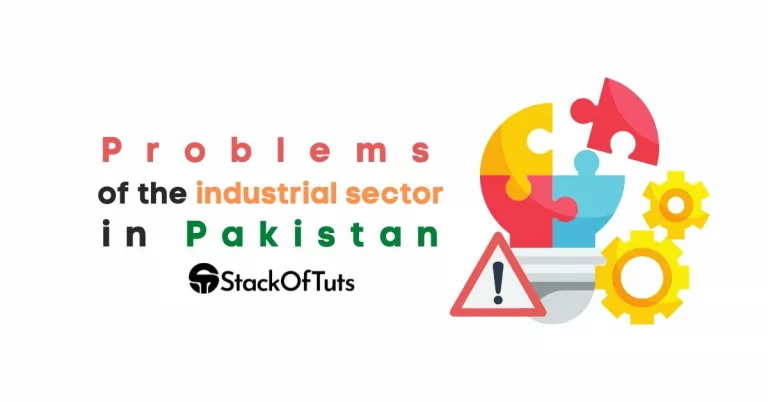
One of the biggest changes in an age marked by quick technical advancements and the digitalization of many elements of our life has been in the field of education.
Learning has now branched out into the large and adaptable world of online learning, going beyond the confines of a typical classroom.
Online degrees have caused a discussion about the pros and cons of traditional degrees. With more individuals seeking higher education and better job prospects, this subject is crucial.
We want to investigate the advantages, difficulties, and inherent worth that each alternative has to offer as we dive into this comparative study.
The intention is to help prospective students make a decision that best suits their choices for learning, lifestyle, and career objectives.
An online degree is what?
A sort of academic program called an online degree enables students to complete their degree requirements entirely online.
Students often get access to their work through a virtual classroom platform and can participate in conversations.
Because they are flexible, accessible, and affordable, online degrees are growing in popularity.
They provide students the chance to juggle their obligations to employment, family, and academics.
Related: We’ll show the best educational websites in Pakistan and what they offer, how they contribute to the country’s academic scene, and what makes them unique.
Benefits of an online degree:
Flexibility:
The first and most important benefit of earning a degree online is flexibility. Students can tailor their study plans for online learning to match their commitments both personally and professionally.
This causes individuals may do their assignments whenever they want, attend online classes whenever they want, and study at their speed.
Cost-effectiveness:
The cost of an online degree is far lower, which is its second major advantage.
Online courses sometimes feature reduced tuition fees and don’t charge extra for living expenses or transportation.
Additionally, online students are allowed to continue working while pursuing their degree, which enables them to maintain a steady income and prevent major financial difficulties.
online resources:
The ability to access more resources is the third advantage of earning your degree online.
Online learners can use any location with an internet connection to access course materials, research databases, and other academic resources.
Customization:
The ability to alter your learning style is the fourth advantage of earning a degree online.
Students may frequently select from a wide range of courses and specializations in online programs to tailor their education to their interests and professional aspirations.
Career development:
With an online degree, a person may continue working and further their education.
They can get new information and skills from this to advance in their careers or at their existing jobs.
Drawbacks of online degree:
Small-scale interactions:
Online learning doesn’t involve as much social engagement as traditional learning.
Students could experience loneliness and lose the opportunity to make new friends that comes with physically attending class.
Technological issues:
Technology issues can provide significant challenges for online learning.
Problems with the internet, hardware, or software can all have an impact on how well students study.
Self-Motivation:
Online studying demands a great deal of self-discipline and determination.
It may be challenging for students who have problems organizing their time and pushing themselves to accomplish things to stay on top of their academics.
Lack of qualification and training:
Some online courses might not be accredited, in which case the degree or certification you receive might not be recognized by employers or other academic institutions.
There is little practical training:
Science and art, for example, call for hands-on learning that may not be achievable in an online environment.
Students may find it challenging to study as much as they could as a result.
A traditional degree is what?
A traditional degree is a four-year bachelor’s degree obtained at a college or university.
The majority of the time, it entails attending on-campus classes and working in a particular field of study.
Benefits of a conventional degree:
Organizing a Learning Environment:
This type of degree’s first advantage is that it provides students with a predetermined timetable for their classes, assignments, and exams. They can better manage their time as a result.
Interactive Education:
Students in traditional education have the opportunity to interact with their professors and peers in person, which may help them develop their social skills and create lasting bonds.
Certification:
Traditional education is typically accredited by reputable organizations, giving the degree greater weight and making it easier for graduates to get jobs.
Individual Attention:
In a typical classroom, professors may devote all of their time to each student, which can help them comprehend the subject matter better and provide clarification on any doubts or issues they might have.
Discipline:
Due to the necessity of attending class, completing assigned readings, and meeting due dates, conventional education teaches students responsibility and discipline.
Drawbacks of conventional schooling:
Restricted adaptability:
There may not be much space for modification when students are required to attend class at specific times and follow a predetermined curriculum.
Inadequate individualized attention:
For students who struggle with particular classes or who require alternate learning techniques, traditional schooling might be difficult.
High prices:
Due to their high cost, conventional degrees might be difficult for many students to afford.
Restricted access:
People who live far away or have problems getting around find it challenging to attend school because traditional education is frequently only offered to those who reside close to the school.
Table of Comparison
Let’s break down the pros and cons of both online and traditional degrees.
This will be detailed in the table below, following a 3-column sequence; first for the comparison criteria, second for online degrees, and third for traditional degrees.
| Comparison Criteria | Online Degree | Traditional Degree |
|---|---|---|
| 1. Flexibility | High (Study at your own pace) | Low (Fixed schedule) |
| 2. Interaction | Virtual interaction via online forums | Face-to-face interaction |
| 3. Cost | Generally less expensive | Can be more costly due to additional expenses |
| 4. Learning Style | Self-directed learning | Guided instruction |
| 5. Networking Opportunities | Limited, mostly online | Wide, in-person networking |
| 6. Access to Resources | Digital resources | Physical and digital resources |
| 7. Degree Recognition | Universally recognized, dependent on reputation of the institution | Universally recognized, dependent on the reputation of the institution |
| 8. Campus Experience | None | Offers campus life experience |
| 9. Geographic Flexibility | Can study from anywhere | Requires physical presence |
| 10. Technological Requirements | Reliable internet access required | Basic technology suffices |
Here are some queries that might assist you in making a decision:
- Do you desire the freedom to choose your schedule and pace of work? If so, earning your degree online could be more advantageous.
- Do you believe that it is essential to network with classmates and teachers in person? If this matters to you, a conventional degree could be more beneficial.
- Do you possess the drive and self-control to manage your time and responsibilities independently? An online degree may be a suitable option if you are confident in your ability to care for yourself.
- Do you possess the tools and internet access required for online learning? If not, earning a regular degree could be preferable.
- Are you seeking a lower price because you’re concerned about how much something will cost? The majority of online degrees have cheaper tuition fees and other charges, making them more affordable.
- How are online degrees seen by potential employers in the sector you wish to work in? Make sure the format you select is compatible with your professional objectives by doing some research on how employers think and what they prefer.
Making the Decision: What’s Best for You?
The choice between an online degree and a conventional degree relies heavily on the demands and circumstances of the particular student.
Think about how you learn best, your financial situation, and your professional aspirations.
FAQs
Indeed, a degree earned online from a reputable university may be just as valid as a traditional degree.
While networking and connection opportunities may be there with online degrees, they may not be comparable to traditional degrees. While some online courses provide virtual forums, webinars, and networking opportunities, others can have fewer opportunities for in-person interaction.
Online degrees frequently cost less than traditional degrees. This is due to the possibility of lower tuition fees and reduced expenses for things like housing and food at online institutions.
The difficulty of online vs. conventional degree programs varies depending on the learner’s circumstances and learning preferences may vary. However, for those with limited time or mobility, online degrees could provide greater flexibility and convenience.
Conclusion:
In summary, both traditional and online degrees offer advantages and disadvantages.
Online degrees are adaptable and simple to obtain, but traditional degrees are more rigid and need greater instructor involvement.
In the end, the decision between the two is based on personal tastes, circumstances, and objectives.
You should carefully consider the factors that are essential to you before choosing a choice.
Thanks!





